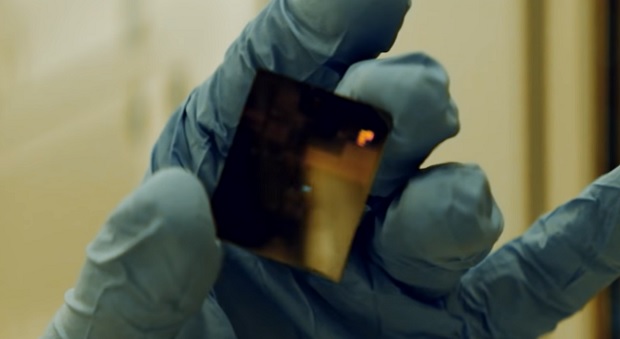Tech behemoth IBM recently unveiled its 2-nanometer (nm) chip technology, which the company said will be the “foundation of future technology.”
Chips are found in all devices: from cellular phones, laptops and desktops, smart appliances, and automobiles, among others. On a larger scale, chips power data centers, and powerful computers for space exploration. In the future, technology will be even more demanding for more powerful, more energy-efficient chips.
So how does a smaller chip impact these devices?
According to IBM, its 2-nm chip technology, which is the first in the world, “will improve performance by 45% using the same amount of power, or use 75% less energy while maintaining the same performance level as today’s 7 nm-based chips.”
In a nutshell, the smaller chip will bring more computing power, while lessening power consumption.
IBM said its designers and engineers were able to “fit 50 billion transistors on a chip the size of a fingernail.”
The tech giant said this chip design, which is evidence of the continuation of Moore’s Law, “will be the foundation for future systems (both IBM and non-IBM), and the potential benefits of these advanced 2-nm chips will be exponential for today’s most advanced semiconductors.”
The 2-nm breakthrough was developed by IBM Research at IBM Albany Lab, one of the most advanced semiconductor research facilities in the world.
As a background, IBM in 2015 created the world’s first 7-nm test chip. It eventually unveiled a 5-nm test chip in 2017.
But the commercial release of the 2-nm chip will have to wait; companies have now just begun to use the 7-nm chip. In fact, IBM will unveil its own 7nm processor later this year.
Mukesh Khare, VP of hybrid cloud research at IBM, said in a regional virtual press conference that the unveiling of the 2-nm chip will become the de facto standard in the coming years, particularly in the next decade.
“We see the 2nm technology being widely used in 2025,” Khare said, adding that “this technology will change everything” from power-efficient data centers to mobile phones that can charge faster and have longer battery power.
Khare said IBM has partnered with technology giants Samsung and Intel for 2-nm technology and will continue to establish more partnerships for the new chips in the “near future.”
The executive said the whole technology “ecosystem” will benefit, once the 2nm chips become more prevalent.




